The School Programme in Andriantantely
A school programme forms part of our multi-year project working with local communities in and around the lowland rainforest of Andriantantely supported by the Critical Ecosystem Partnership Fund (CEPF). This programme will include training teachers in environmental education and market gardening for two main reasons. We need to combat the shifting baseline syndrome which has seen each successive generation more tolerant of ecological degradation to one of understanding the potential profits to be gained from environmental protection by introducing ecosystem-based agricultural practices as part of the school curricula, and we aim to reduce school dropout which is common during lean periods.
.jpg?width=4000&height=2250&name=B%C3%A2timent%20%20de%20classe%20EPP%20Sandraka%20(3).jpg) Sandraka school © The Aspinall Foundation Madagascar
Sandraka school © The Aspinall Foundation Madagascar
Why the School Programme is Important
Children are naturally more open to learning and adaptation compared to adults and, as decision makers of the future, they will carry the skills they learn to adulthood. Rural communities are heavily dependent on agriculture to provide food and income, yet traditional agricultural practices are often damaging to the environment. In addition, Madagascar is currently one of the most severely affected countries to the negative impacts of climate change and these climatic changes are particularly damaging to agriculture. By teaching children about the natural environment and providing training in the techniques for climate-smart agriculture we can help the rural communities to be more resilient to climate change whilst also increasing the protection of vital habitats and wildlife by developing the capacity of local people to become effective stewards.
The Schools Participating in the Project
For this project we have 6 schools participating and the programme will involve training 20 teachers and more than 700 children each year throughout the project. We will be collaborating with local NGO Fanambinantsoa who have specialist knowledge on working with schools and our aim is to strengthen the teaching skills of the teachers with a particular focus on the local challenges and promoting sustainable environmental education.

A list of the participating schools © The Aspinall Foundation Madagascar
Key activities will include:
● Integrating school vegetable garden management into the school environment based on four training modules.
● Improving teachers’ scientific mindset and teaching skills.
● Establishing a functional school garden in each institution.
● Developing income-generating activities at the school level.
The School System in Madagascar
Education in Madagascar is structured into several levels, including primary, secondary, and higher education. However, in rural communities only primary level schools exist, providing education up to the age of 11. Responsibility for education comes under the Ministry of National Education with decision-making authority distributed to local representatives. This structure includes Regional Education Directorates (DREN) which oversee education at the regional level and School Districts (CISCO), responsible for coordinating district-level educational and administrative activities. At community level, Administrative and Pedagogical Zones (ZAP), led by ZAP chiefs, provide training and monitoring support to teachers, ensuring a direct connection to schools.
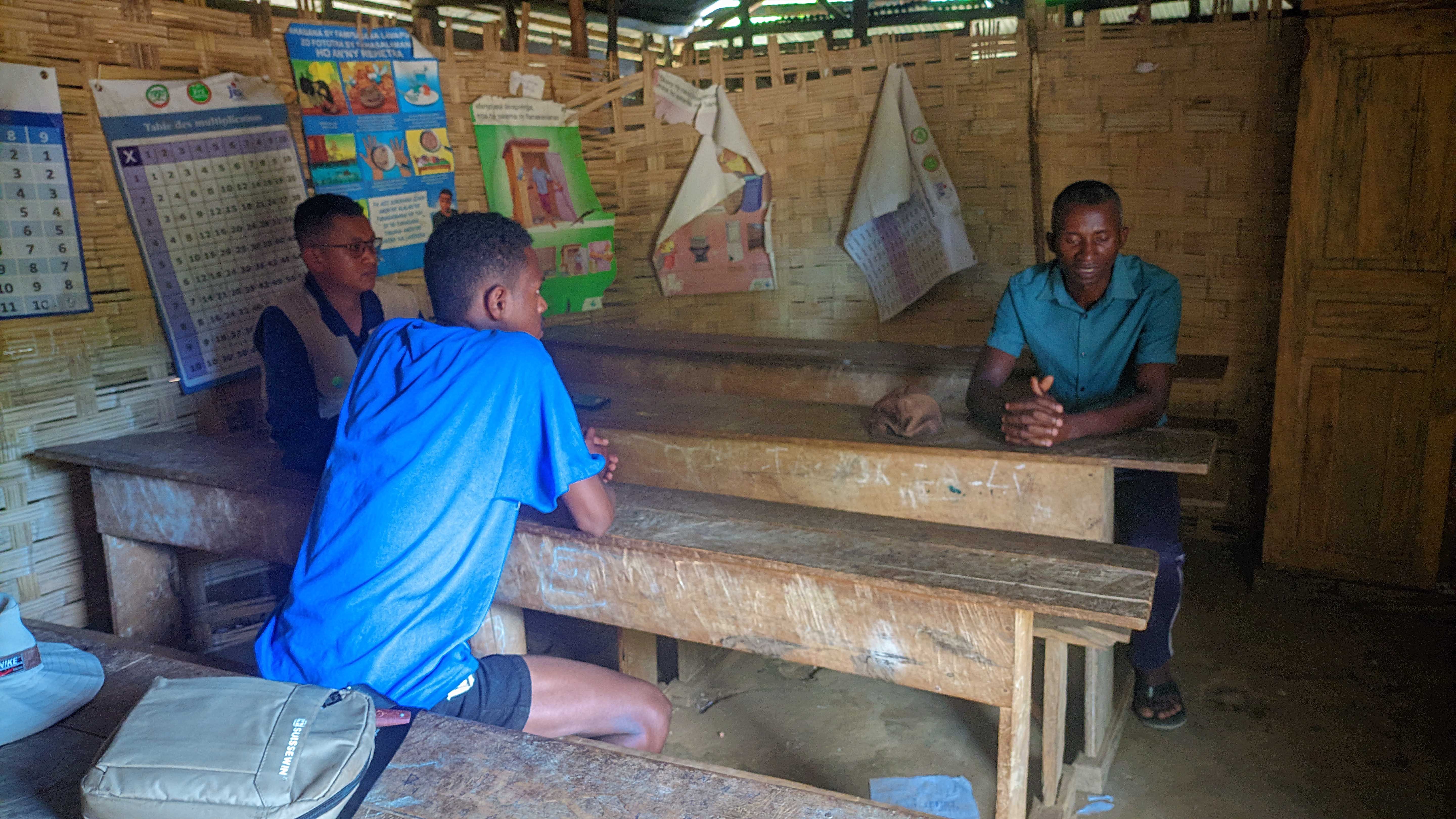 Representatives of NGO Fanambinantsoa meeting with the Chief of ZAP Ambohimanana © The Aspinall Foundation Madagascar
Representatives of NGO Fanambinantsoa meeting with the Chief of ZAP Ambohimanana © The Aspinall Foundation Madagascar
Maintaining good communication and respecting the role of the various levels of authority are crucial to the smooth implementation of the project and during September the project coordinator, with representatives of NGO Fanambinantsoa, conducted a series of meetings with all the relevant stakeholders to explain the purpose and aims of the school programme. We were delighted that all the local authorities visited granted their agreement to collaborate on the project, which guarantees site access and the official support necessary for conducting the training.
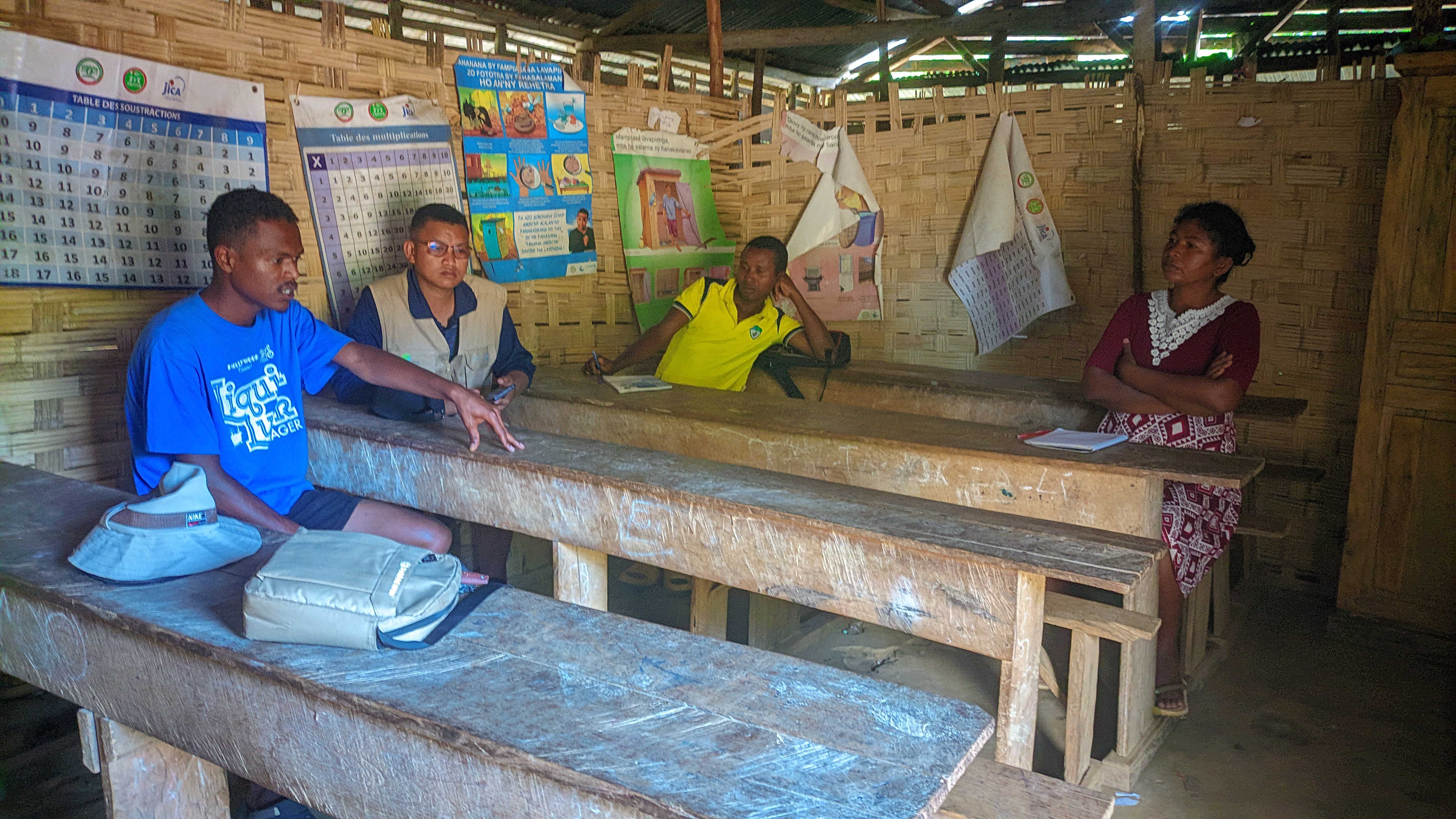
Meeting with the Directors of EC Andranomihoatra © The Aspinall Foundation Madagascar
Site Visits
Also during September site visits were carried out to the various schools to assess the feasibility of planned activities.
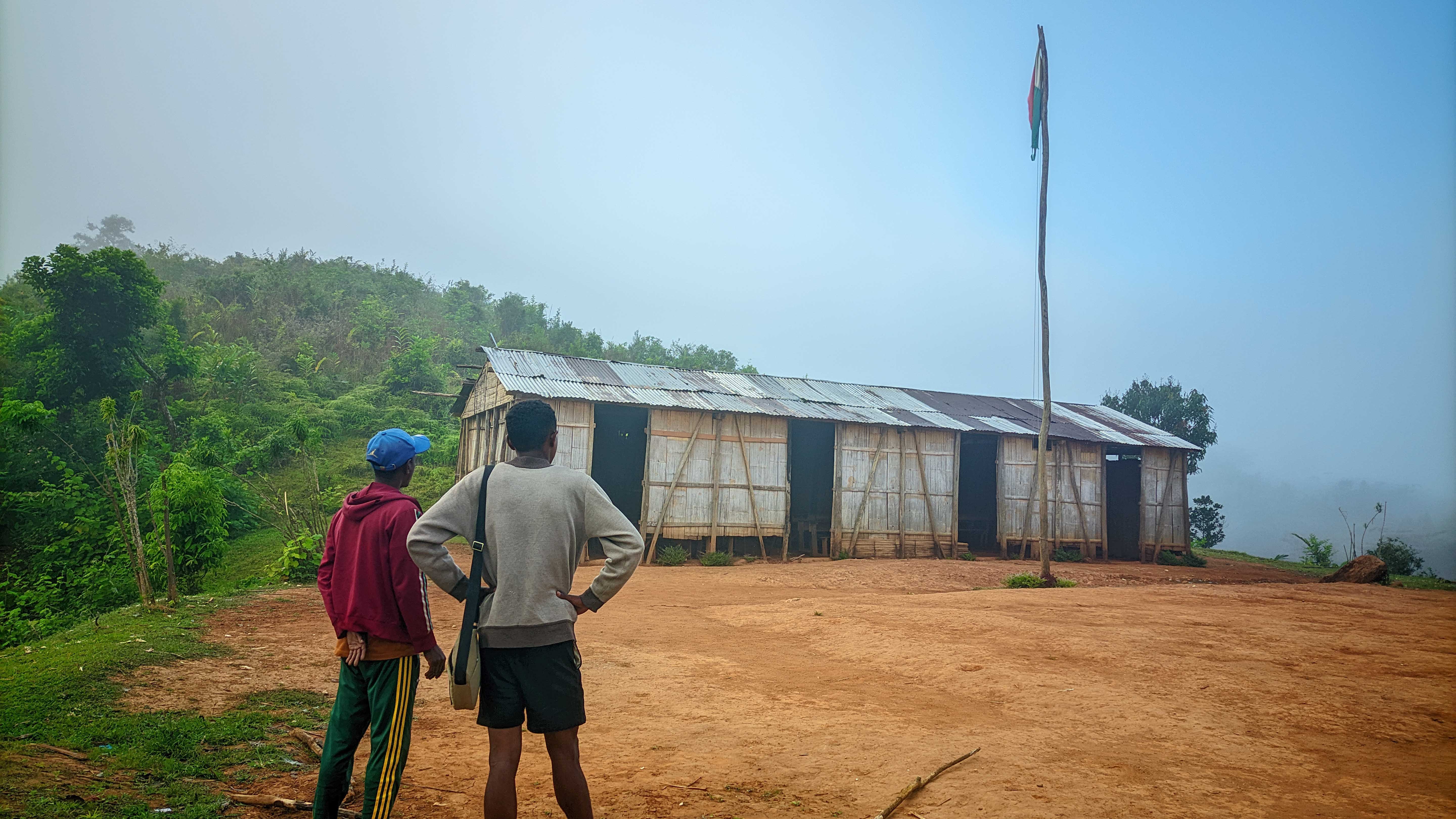
Site visit to EPP Bezamba © The Aspinall Foundation Madagascar
There are various factors that have a negative impact on education in Madagascar. There is a lack of government funding, which impacts the overall quality of education and other factors, such as poor infrastructure with schools lacking basic amenities and a shortage of qualified teachers being most evident in rural locations. Even more relevant to rural areas is a high level of dropout of children during the school year, often caused by the effects of poor nutrition/food availability.
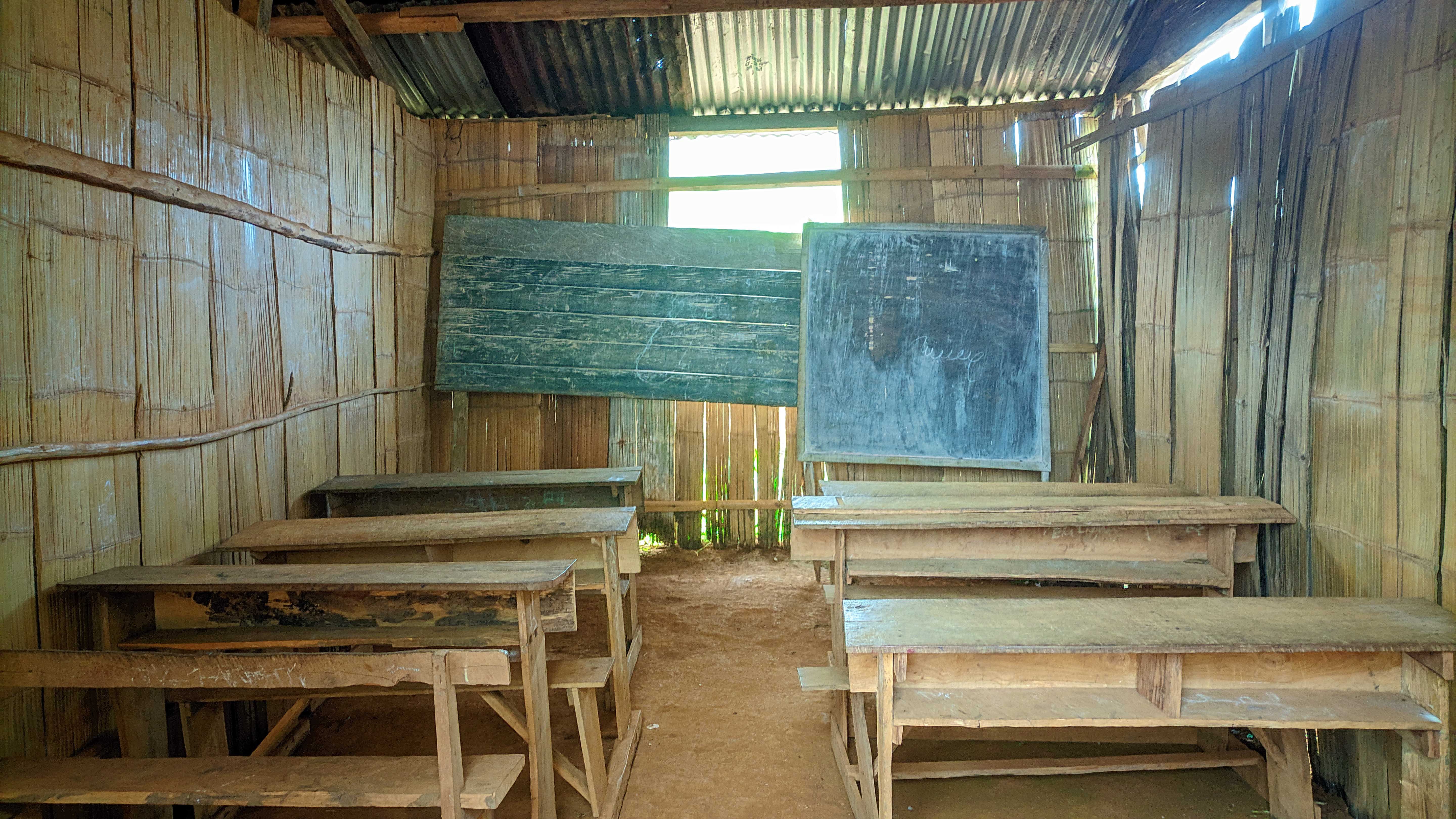
A classroom at EPP Bezamba © The Aspinall Foundation Madagascar
The site visits provided a valuable opportunity to make an initial assessment of any disparities in the allocation of human resources and the suitability of each school’s location for the market gardens. Fortunately, each school does have either adequate space, or are able to secure an area, for the gardens. The main obstacle for the sustainability of the gardens is access to water. Although most schools have a water source within a reasonable distance (less than 200 metres), EPP Sandraka faces a major water constraint, as the water source is located about 600 metres away. Thought is now being given to establishing a specific supply strategy for this school.
In Conclusion
Overall the work carried out on the school programme during September has yielded significant results. The meetings with the various local authorities were well received, site visits were met with a positive reception from the local communities suggesting that community engagement will be high as the project progresses, and market gardens can be established at each school.
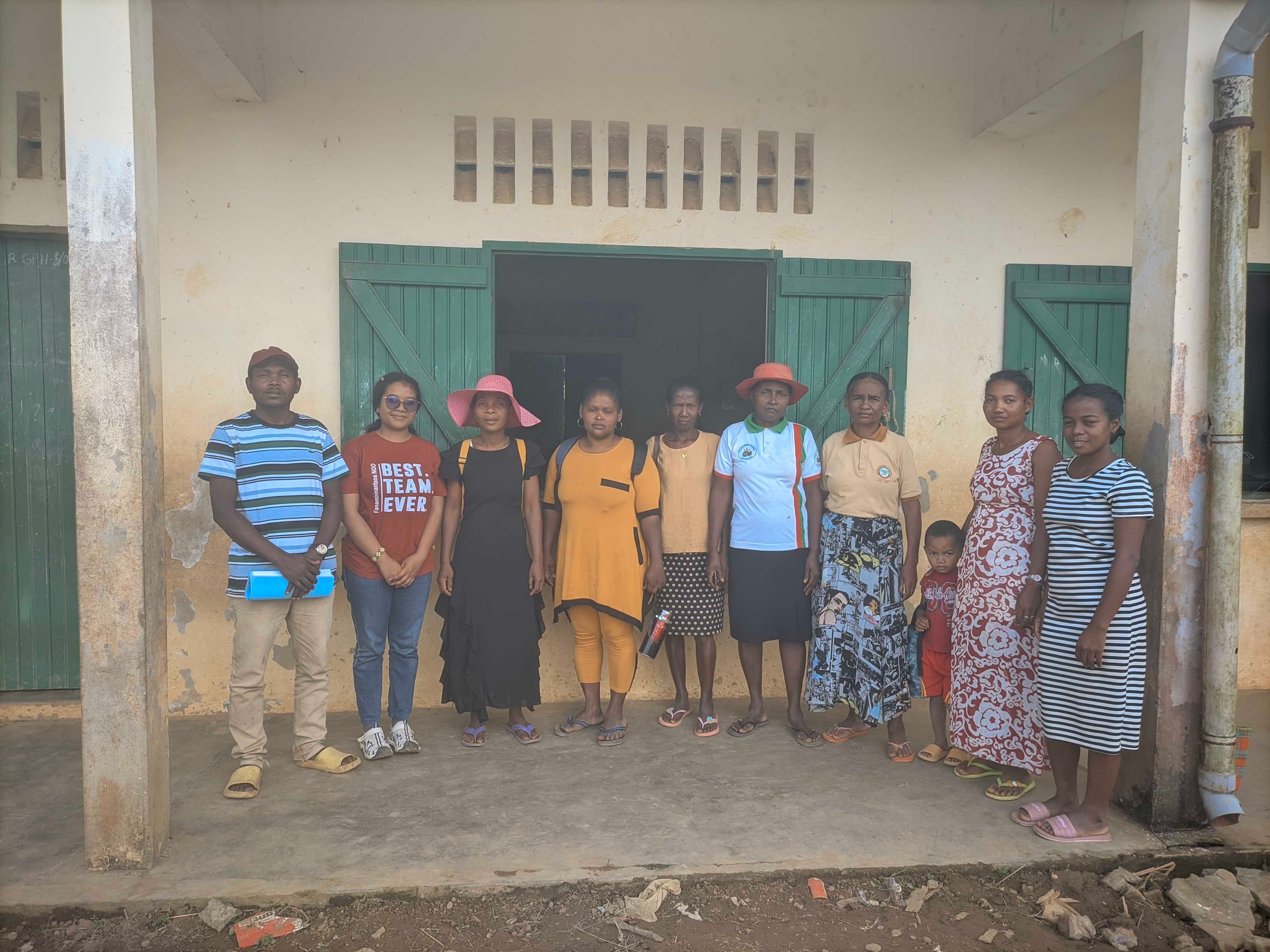 The teachers at EPP Sandraka © The Aspinall Foundation Madagascar
The teachers at EPP Sandraka © The Aspinall Foundation Madagascar
We look forward to bringing you more updates on this, and other elements of the project over the coming months. In the meantime, we would like to thank CEPF for their support and collaboration.
The Critical Ecosystem Partnership Fund is a joint initiative of l’Agence Française de Développement, Conservation International, the European Union, the Fondation Hans Wilsdorf, the Global Environment Facility, the Government of Canada, the Government of Japan and the World Bank. A fundamental goal is to ensure civil society is engaged in biodiversity conservation.

